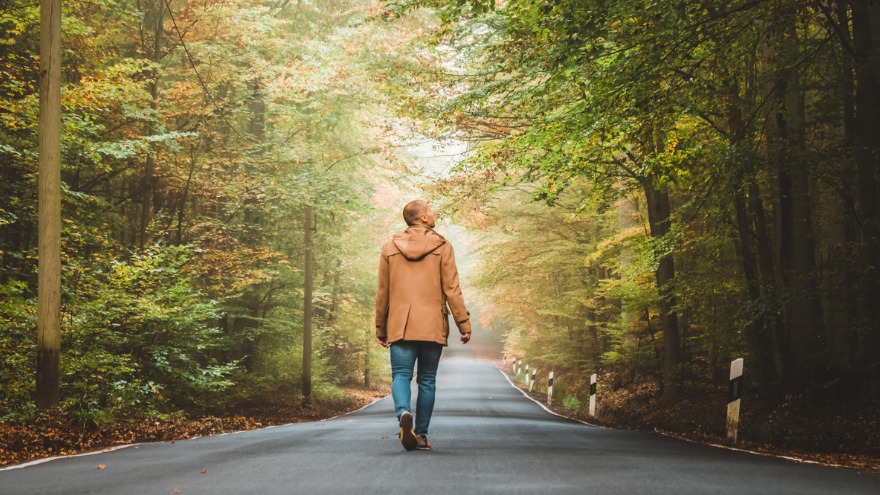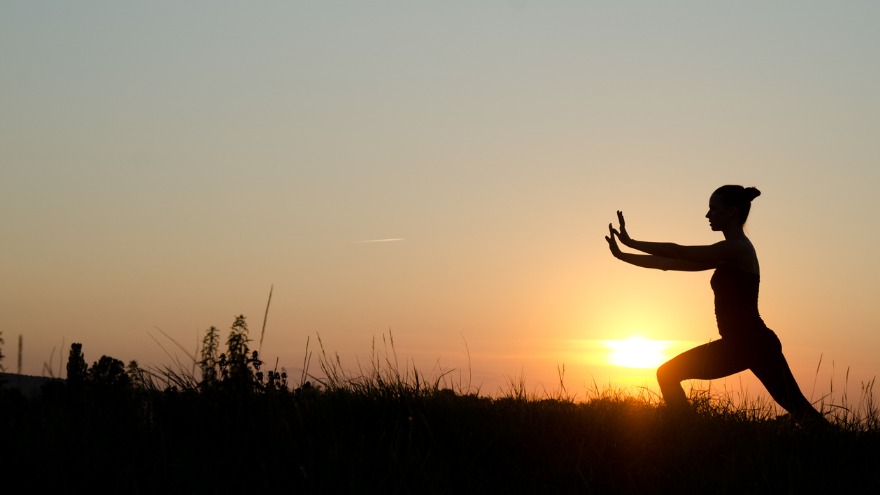What’s not to like about fitness, wellness and Vitamin D?
Your mom was right.
The park or woodland trail near you is your playground, whether it’s for all-out fitness or the gentle benefits of tai chi. Maybe you’re happy to be able to hit your fitness center again, but think about it for a moment: Wasn’t getting outside for exercise during the pandemic pause a healthier, more natural way to go?
The science says yes. First off, there’s an epidemic of vitamin D deficiency in this country. Cleveland Clinic says 42 percent of Americans suffer from this easily remedied condition, which is linked to mood swings, chronic skin conditions and other ailments. You can get this vitamin from certain foods and take supplements, but not for nothing is vitamin D called “the sunshine vitamin.”
Moreover, being in nature just makes people feel more alive, according to studies published in Journal of Environmental Psychology. In other research, differences were tracked between walking for the same time and distance indoors and outside. Guess what? It was nearly unanimous that those who walked outdoors scored much higher on tests for vitality and energy—and lower in anger and depression.
Indeed, it’s been reported that more than 100 studies have shown that being active in the countryside or urban nature areas lowers stress.
“Breathing in fresh air, feeling the ground under your feet, and taking in all the colors and sounds in nature are positive stimulants hitting you at the same time. You can’t help but feel better about yourself and the world around you,” says Danny Dreyer, founder of North Carolina-based ChiWalking, which combines tai chi with walking. He told WebMD that a stress-reducing walk or a run in nature begins with clearing your mind, softening your gaze and breathing deeply into your belly through your nose.
Meditation in Motion

During the worst months of the pandemic, I would often find myself walking the periphery of a sprawling former military parade ground near my home. Day after day, under the same magnificent California live oak, I would see a solitary woman of a certain age in graceful, almost imperceptible movement. This was tai chi. Often described as “meditation in motion,” Harvard Health likens it to “medication in motion.” It cites growing evidence that this Chinese mind-body practice “has value in treating or preventing many health problems.” And because it’s performed in slow motion and without straining, “the muscles are relaxed rather than tensed, the joints are not fully extended or bent, and connective tissues are not stretched.”
Sure, you can practice tai chi inside, but the trainers say you’ll stay with it longer in your favorite park. The same is true for more active forms of exercise. Experts say you’ll burn 10 percent more calories running or walking outdoors than on an indoor treadmill at the same speed. Why? Natural surroundings are more likely to distract you, taking your mind off the effort being expended. And then there’s the unavoidable fact that returning to your starting point usually involves more than pushing the “off” button.
Who can deny we simply feel better about ourselves after being outside? Unless weather conditions are extreme, it promotes a sense of healthiness. The light, the fresh air, the vistas are rejuvenating. Websites are ready to suggest numerous ways we can exercise any muscle group or parts of our bodies without fancy gym equipment.
Or how about simply getting more into outdoor sports like tennis, pickleball and golf (if allowed, skip the golf cart and clock about 5 miles and 2,000 calories in 18 holes!). All these sports have the added benefit of easy social distancing, for an extra dollop of well-being.
Bottom-Line Benefit
But there’s one more tangible benefit to most outdoor activity—one that can have welcome added value as we strive to recover from trauma brought on by Covid-19. It’s absolutely free. Can you use that $50 or $60 a month for something other than a gym membership? Especially since, if you’re like most of us, you don’t actually get there nearly as often as you thought you would?
As Harvard Health points out, running out your front door also saves you cash on gas.




